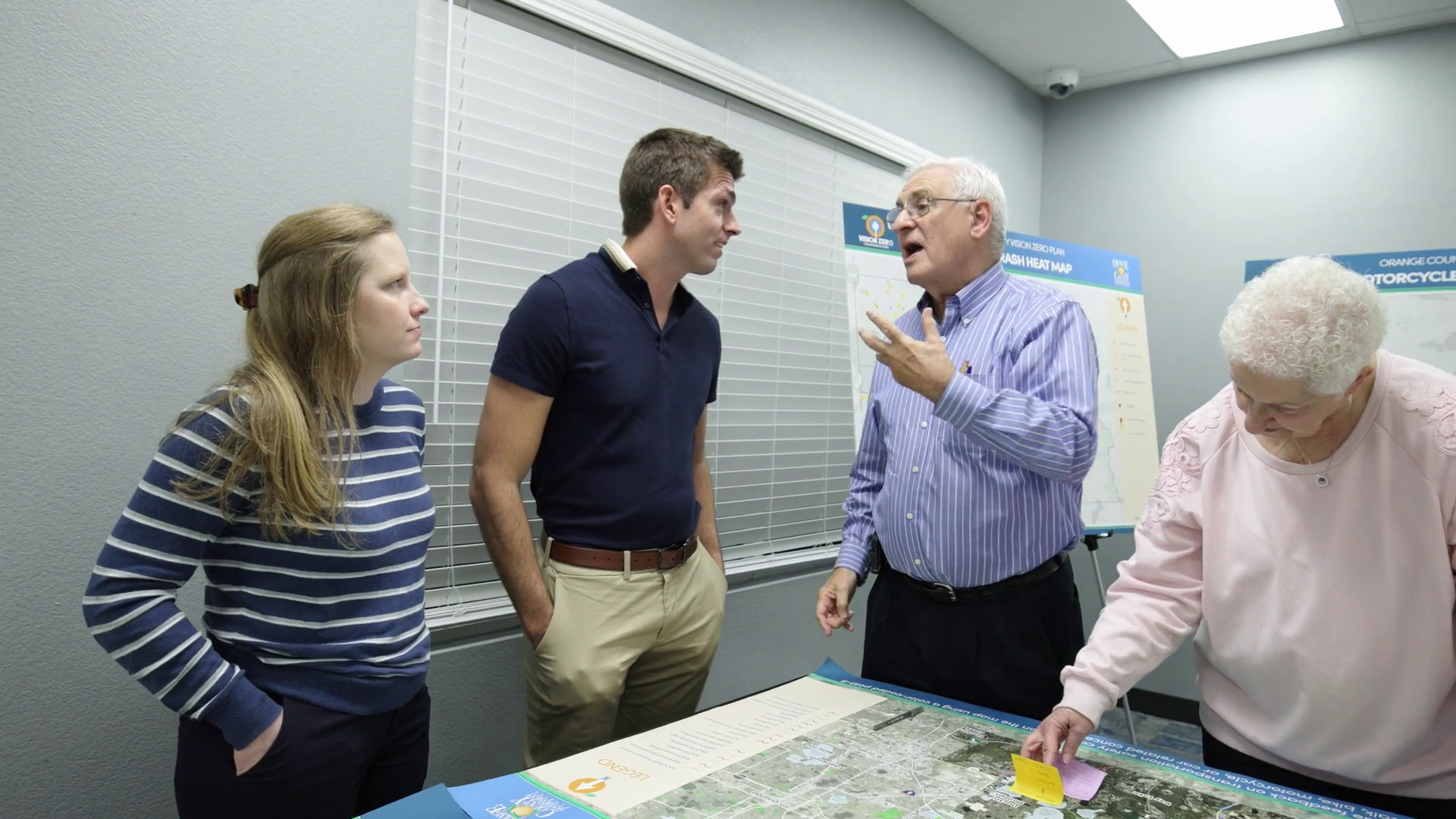
Zero Fatalities: Orange County Adopts Vision Zero Strategies to Save Lives
Each year, more than 42,000 people are killed on American streets, and thousands more are injured. In 2022, there were 209 fatalities and 1,208 severe injuries on Orange County roadways, as the Orange-Kissimmee-Sanford metro area continues to rank as one of the deadliest regions in the United States.
In 2022, the Orange County Board of County Commissioners voted to adopt a resolution to develop a Vision Zero Action Plan to eliminate all traffic fatalities and severe injuries by the year 2040 while also increasing safe, healthy, equitable mobility for all. First implemented in Sweden in the 1990s, Vision Zero has proved successful across Europe and is now gaining momentum in American cities.
The Orange County Vision Zero Action Plan is part of a regional effort by MetroPlan Orlando to reduce traffic fatalities and severe injuries, creating safer roads for both the 2.2 million residents and 75 million tourists who visit the region annually. Coordinated Vision Zero Action Plans will be created for cities and counties throughout the region, made possible by a $3.8 million federal Safe Streets for All (SS4A) grant.
“Safety is important to everyone, and transportation and infrastructure create the means for the community to connect,” said Humberto Castillero, Traffic Engineering Division Manager, Orange County Public Works. “We’re designing roads and educating people to ensure we have a holistic transportation system that enhances quality of life for all residents.”
While waiting for the plan to be finalized, Orange County Mayor Jerry L. Demings and County Commissioners passed an Accelerated Transportation Safety Program, allocating $100 million to implement traffic safety improvement projects that enhance sidewalks, lighting, speed management, pedestrian safety, access management and traffic calming.
A dedicated funding source for our regional transportation system remains a priority. Orange County continues to make other investments in transportation and the core LYNX services it funds, but in the interim, the County must seek opportunities to address needs with available resources. The projects selected for the Accelerated Transportation Safety Program encompass the County’s Vision Zero Strategy.
Vision Zero recognizes that people sometimes make mistakes, so road systems and related policies should be designed to make sure human error doesn’t result in severe injuries or fatalities. As such, system designers and policymakers are expected to improve the roadway environment, policies and other related systems to lessen the severity of crashes.
“We cannot accept any fatalities, and that should be our ultimate goal,” asserted Castillero. “This puts a lot on our plate, but it’s a good thing. We all have a stake in this, and we’re all part of the solution. We’re coming together as a community to put safety first, and we’re going to move the needle on this.”
For more information, go to Orange County Vision Zero.
